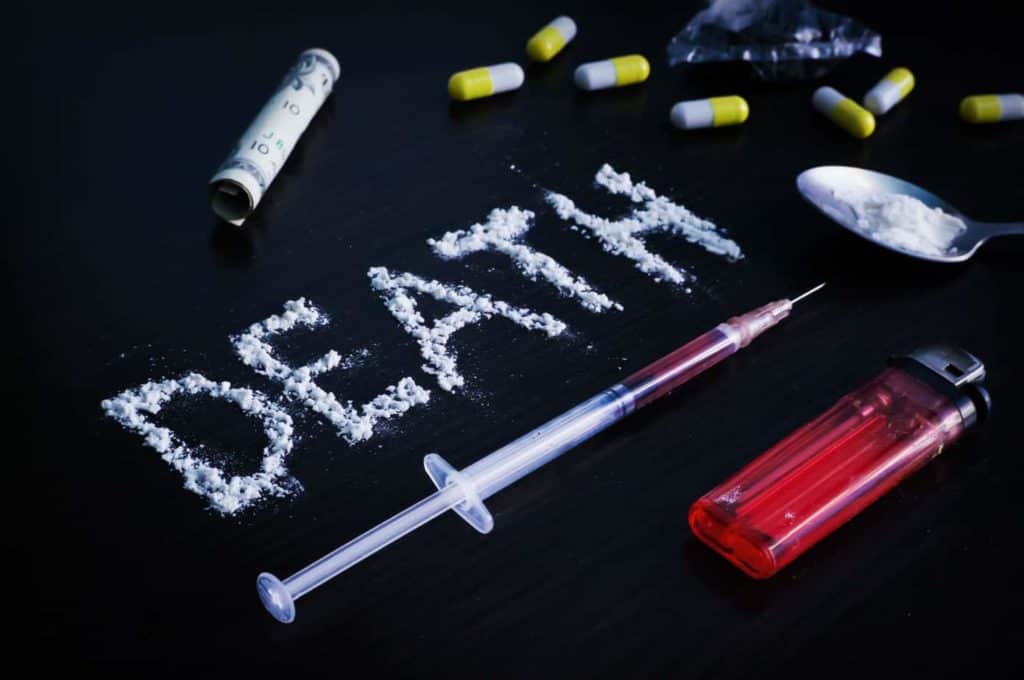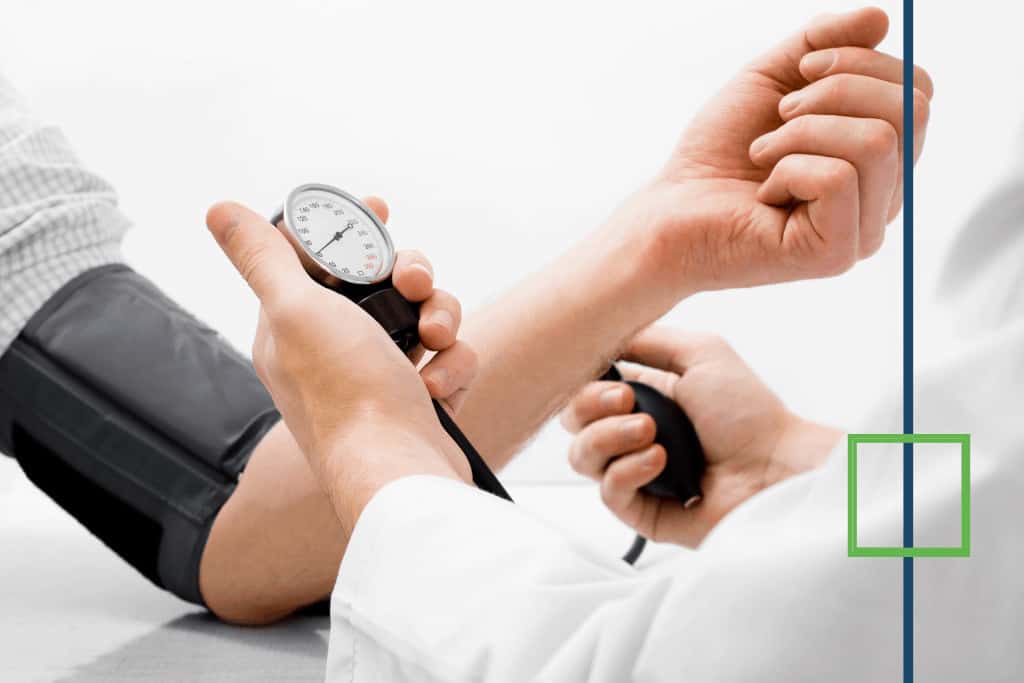Is Crack Harmful?
Crack is a slightly different form of cocaine that is mixed with another basic chemical such as ammonia or baking soda. Is there a difference between cocaine and crack cocaine? There are no pharmacological differences between powder cocaine and crack cocaine. This means that, chemically, they are nearly identical and hence, produce similar results. When smoked, crack produces a very fast and intense feeling of euphoria. Unfortunately, this feeling is extremely harmful, not to mention it often leads to crack addiction.
According to the National Institute on Drug Abuse (NIDA) [1], around 72 percent of cocaine-related drug treatment admissions are due to crack cocaine. This is a startlingly high statistic considering the harmful crack effects. Users often underestimate the dangers of crack cocaine effects.
Crack cocaine is a stimulant. That means it affects the central nervous system. Like other stimulants, crack gives you an energy surge. That, in turn, boosts your alertness, leaving you feeling a “high” from the drug. In addition, because a high from crack does not last very long, people need to repeatedly smoke it in order to maintain a high. This pattern of use increases the risk of cocaine addiction and crack cocaine overdose.


Get Your Life Back
Find Hope & Recovery. Get Safe Comfortable Detox, Addiction Rehab & Dual Diagnosis High-Quality Care.
Hotline(844) 597-1011Crack Cocaine Effects
Crack, or freebase cocaine, is a form of cocaine that has been processed to form a solid “rock” that is often smoked. Vapors are produced when the crack is heated and are then absorbed into the bloodstream through the lungs. The title “crack” is used because of the crackling sound cocaine emits as it is heated. Cocaine is a potent central nervous system (CNS) stimulant that increases levels of the neurotransmitter dopamine in brain circuits regulating movement and pleasure.
Crack cocaine prohibits the dopamine from being recycled back between the neurons and thus creates extreme amounts of dopamine to linger, flooding the brain and causing the euphoric high that is associated with crack. Smoking crack delivers the drug rapidly to the bloodstream and brain via the lungs, producing a stronger and quicker but shorter-lasting high than snorting cocaine.
Crack can cause long-term changes in the brain’s reward system as well as other brain systems, which may lead to crack addiction when consumed repeatedly. Repeated use also causes the body to generate tolerance to crack cocaine. Crack abusers report that they try, but fail, to achieve as much pleasure as they did from their first time using. And so it follows that users will increase their dosage and regularity in an attempt to prolong and intensify their high. Unfortunately, this also escalates the risk of negative physiological and psychological crack effects.

Short Term Effects of Crack Cocaine
Many of the immediate and short-term effects of crack cocaine are extremely dangerous. As an intense psychoactive drug, it increases certain functions within the body. When smoked, crack passes through the lungs, into the bloodstream, and right to the brain. Many of these reactions lead to coma, seizures, and death. The dangerous immediate short term effects of crack cocaine are:
- Increased heart rate possibly leading to cardiac arrest
- Increased blood pressure possibly leads to stroke
- Increased respiration and body temperature possibly lead to unconsciousness
- Hallucinations possibly lead to a psychotic break
- Erratic and violent behavior possibly leads to risk-taking
As if these short-term effects of crack cocaine are not dangerous enough, many of these lead to long-term problems.
Long Term Effects of Crack Cocaine
When someone thinks of smoking crack they do not always consider the lasting damage that cracks cocaine can do. Some of the long term effects of crack cocaine are:
- Brain damage – crack use floods the brain with dopamine. This chemical causes feelings of pleasure. Because of this flooding, the brain starts to shut down the receptors for dopamine. Once they are shut down, it makes it very difficult for the addict to feel pleasure without the drug.
- Circulatory system damage – continuous high blood pressure leads to heart attack, stroke, and other cardiac issues.
- Neurological damage – because crack acts to excite the nervous system continuously, it can burn the system out. This causes memory loss, seizures, uncontrolled muscle movements, unregulated temperature, and fluctuating blood pressure. This damage is most often permanent.
- Respiratory damage – just as smoking cigarettes damages the lungs, crack also damages these delicate tissues. Unlike cigarette smoking, the damage that crack does to the lung is not reversible.
- Severe depression – due to the dopamine flood crack causes, the lack of the drug causes the opposite reaction. Many addicts suffer from treatable but permanent states of depression and psychosis.
- Tooth decay – although tooth decay seems like a lesser problem, severe tooth decay causes blood infections which sometimes if untreated can kill.
- Reproductive system damage – continual crack cocaine use results in infertility, erectile dysfunction, and the inability to feel pleasure in both men and women.
- Hepatitis C and HIV from sharing paraphernalia.
- Addiction – Crack cocaine addiction comes with its own dangers. Crack users describe their first encounter with crack as the most profound “high” that they have ever felt. Unfortunately, they spend the rest of their time chasing that “high”. This is because crack starts doing damage the first time that it is used. This is partly the reason why it is so addictive. When they start chasing that high, they forget almost everything else. They become emaciated, their teeth rot, their physical appearance becomes sallow and pocked with sores, and they will do anything to get the drug.
- Financial and legal dangers – When individuals are addicted to crack, they often show up to work “high” or in withdrawal. They cannot perform their jobs while in this condition. This leads to poor work performance. When crack cocaine starts to take control of their lives, they may be late to work or not show up at all. Usually, crack abusers become unemployed shortly after they start taking the drug. An employer will not tolerate a user for very long. The lack of employment leads to a lack of money and financial insecurity. A crack addict may use food, rent, or utility money for drugs. They sometimes resort to criminal activity and become homeless.
Get Help. Get Better. Get Your Life Back.
Searching for Accredited Drug and Alcohol Rehab Centers Near You?
Even if you have failed previously and relapsed, or are in the middle of a difficult crisis, we stand ready to support you. Our trusted behavioral health specialists will not give up on you. When you feel ready or just want someone to speak to about therapy alternatives to change your life call us. Even if we cannot assist you, we will lead you to wherever you can get support. There is no obligation. Call our hotline today.
(844) 597-1011Crack Dependency
Before crack addiction develops, users typically develop a physical dependency on the drug at the outset. Within a short period after first starting crack, the brain becomes physically dependent on the crack effects. Once physical dependency sets in, users start to experience withdrawal effects. With continued drug use, withdrawal effects worsen in intensity and happen more frequently.
Crack cocaine abusers will experience some symptoms of withdrawal as soon as the initial high is gone. It is for this reason that cracks addiction is considered high-risk. The crack user will feel the need to use again to overcome the “let down” of crack withdrawal after a high. As with most highly addictive drugs, a tolerance is built up with each use and more is needed to achieve the same euphoric state that the user desires.
An individual experiencing withdrawal from crack cocaine:
- Will be irritable
- May appear devastated
- Will be exhausted
- Will want to smoke again
- May cry and throw tantrums
- Will need sleep
- Will find less pleasure in “normal” life
- May “need” to smoke to feel normal

According to the Diagnostic and Statistical Manual of Mental Disorders, Fifth Edition (DSM-V), a few criteria that may indicate a generalized crack use disorder include:
- Taking crack in larger amounts or over a longer period than intended
- Craving, withdrawal, and/or tolerance
- Persistent desire or unsuccessful efforts to decrease or control crack use
- Continued crack cocaine use despite social or interpersonal problems associated with its use
- A great deal of time is spent in activities necessary to obtain, use, or recover from the crack effects
- Recurrent crack cocaine use that results in problems at work, school, or home
Typically, if users meet 2 or more of these criteria, it is likely they have a crack use disorder and should seek the appropriate help from a professional.
First-class Facilities & Amenities
World-class High-Quality Addiction & Mental Health Rehabilitation Treatment
Rehab Centers TourRenowned Addiction Centers. Serene Private Facilities. Inpatient rehab programs vary.
Addiction Helpline(844) 597-1011Proven recovery success experience, backed by a Team w/ History of:
15+
Years of Unified Experience
100s
5-Star Reviews Across Our Centers
10K
Recovery Success Stories Across Our Network
- Low Patient to Therapist Ratio
- Onsite Medical Detox Center
- Comprehensive Dual-Diagnosis Treatment
- Complimentary Family & Alumni Programs
- Coaching, Recovery & Personal Development Events
Side Effects of Crack
There’s no denying that the first few doses of crack are often intensely pleasurable, but these side effects quickly give way to the more troubling and dangerous long-term side effects of the crack:
- Damaged skin and teeth
- Malnutrition
- Multiple organ injuries, including muscular breakdown (rhabdomyolysis) and kidney damage
- New or worsening mental health symptoms
- Chronic cardiovascular issues such as congestive heart failure, high blood pressure, strokes, and heart attack
- Infertility, loss of libido, impotence, and other forms of sexual dysfunction
- Concomitant crack and alcohol abuse has been linked with the exacerbation of oral lesions, sometimes leading to cancer
- Coma, seizures, and sudden death
- Pregnancy complications
Organ Damage
Prolonged use of crack cocaine can have severe long-term consequences. Organ damage is a major concern, as crack cocaine use over time can cause both lung and kidney function to deteriorate. Crack cocaine can cause lung damage and worsen respiratory diseases, such as asthma, from smoke inhalation. Crack cocaine can also cause upper airway inflammation that can lead to hoarseness and difficulty swallowing.
Heart Problems
The most significant form of organ damage that can occur with crack cocaine use is heart damage. Crack cocaine use can have significant long-term effects of crack cocaine on your heart, including:
- High blood pressure
- Heart attacks
- Irregular heartbeat
Brain Damage
Cracks can directly cause changes in brain function, leading to strokes. In addition to physically damaging your brain, crack abuse can prevent your brain from performing some of its most basic functions, leading to difficulty with memory, learning, judgment, and making decisions.
Crack cocaine increases stress hormones like cortisol in the brain, which can, in turn, raise blood pressure permanently, damaging the cardiovascular system. Even if the person does not develop psychosis or paranoia, they could develop anxiety, panic disorders, or problems with aggression or violence.
Psychological Issues
Crack cocaine can cause long-term damage to mental health, which appears in the form of mood or emotional disturbances. Because the drug directly interferes with dopamine being reabsorbed by neurons, one of the symptoms of a crack cocaine comedown is serious depression.
If the brain does not reach its original equilibrium, then a person who has struggled with crack cocaine abuse for a long time may develop permanent depression and require ongoing mental health treatment.
Other serious long-term changes to mood and mental health include:
- Auditory hallucinations
- Restlessness
- Paranoia
- Psychosis
Individuals who have an increased potential to develop psychosis or schizophrenia are more likely to trigger this condition if they binge cocaine in powdered, crack, or freebase form.
Crack Overdose
A person can become addicted after his or her first time trying crack cocaine. This is because the crack effects reach the brain very quickly (mostly due to the fact that it is smoked when abused) and then dissipate after five or ten minutes, causing the individual to crave more almost immediately. Therefore, crack has a very high chance of causing an overdose, especially in users who are constantly binging on the drug. If you have a loved one who abuses crack cocaine, it is important to be able to recognize the signs of an overdose.
Many individuals who use the crack believe it to be less likely to cause an overdose because it lasts in the body for a shorter amount of time, but that is not true. How long does crack stay in your system? Like many other illegal drugs, crack cocaine can cause a deadly overdose if an individual takes too much.
Death From Crack Overdose
Crack cocaine deaths often occur because those who abuse the drug binge on it and continue smoking more and more until the drug causes harmful side effects to the heart, lungs, and mind. Being able to recognize a crack overdose is important, as anyone who smokes the drug has the chance of experiencing it. “Sudden death” can occur even with one use of the drug.
World-class, Accredited, 5-Star Reviewed, Effective Addiction & Mental Health Programs. Complete Behavioral Health Inpatient Rehab, Detox plus Co-occuring Disorders Therapy.
CALL(844) 597-1011End the Addiction Pain. End the Emotional Rollercoaster. Get Your Life Back. Start Drug, Alcohol & Dual Diagnosis Mental Health Treatment Now. Get Free, No-obligation Guidance by Substance Abuse Specialists Who Understand Addiction & Mental Health Recovery & Know How to Help.
Crack Cocaine Addiction Treatment Near Me
First and foremost, if you think that a loved one is abusing cocaine, you should first research the drug and addiction associated with it so that you can better understand what your loved one needs. Next, you must plan an intervention to provide your loved ones with options to battle their addiction in a safe and supportive environment. During this intervention, make sure that you offer compassion and support instead of judgment. Lastly, offer your support throughout the entire treatment process.
In addition, crack addiction can have severe physical and psychological effects, so it is essential to seek treatment as soon as possible. Inpatient drug rehab offers intensive care that can help you get through the early stages of withdrawal promptly. Since crack is usually smoked, you might want to know “what does cocaine smell like? We’ve learned how it can be cut with fentanyl and rat poison which can lead to overdose and death, so it is important not to smell or taste it just to test its purity.
Learning how to leave a crack addict is not an easy decision but you must face it once it’s there. Crack effects are devastating not only to the person but also to the whole family. Addiction is a family disease.

Medically-Assisted Detox
Detox is often considered the first stage of treatment. It will help you navigate the complicated process of withdrawal, but it doesn’t address patterns of thought and behavior that contribute to drug use. Various treatment approaches and settings can help provide the ongoing support necessary to maintain long-term sobriety after you complete detox.
Cravings are very common during detox and can be challenging to overcome. This often leads to relapse. Constant medical care provided during inpatient treatment helps prevent relapse. Clinicians can provide necessary medication and medical expertise to lessen cravings and the effects of withdrawals.
Psychotherapy
Several different modalities of psychotherapy have been used in the treatment of mental health disorders along with addiction, including:
- Cognitive Behavioral Therapy (CBT) – is an effective treatment that involves making changes in both the patterns of negative thoughts and the behavioral routines which are affecting the daily life of the depressed person for various forms of depression.
- Dialectical Behavior Therapy – is a comprehensive mental health and substance abuse treatment program whose ultimate goal is to aid patients in their efforts to build a life worth living. The main goal of DBT is to help a person develop what is referred to as a “clear mind.”
- Person-Centered Therapy – is a strategy that allows and encourages clients to understand and resolve their concerns in a safe, supportive environment.
- Solution Focused Therapy – is an approach interested in solutions that can be quickly implemented with a simple first step leading to further positive consequences.
Dual Diagnosis Treatment
Drug abuse and mental health disorders often co-occur. In many cases, traumatic experiences can result in a mental health disorder and substance abuse. Dual diagnosis rehabilitation treats both of these issues together. The best approach for the treatment of dual diagnosis is an integrated system. In this strategy, both the substance abuse problem and the mental disorder are treated simultaneously. Regardless of which diagnosis (mental health or substance abuse problem) came first, long-term recovery will depend largely on the treatment for both disorders done by the same team or provider.
Medication-Assisted Treatments
Medication-Assisted Treatments (MAT) for substance use disorders and mental health disorders are commonly used in conjunction with one another. This includes the use of medications and other medical procedures. During your rehab, the staff from your treatment facility will help you identify what caused your addiction and teach you skills that will help you change your behavior patterns and challenge the negative thoughts that led to your addiction. Sometimes, the pressures and problems in your life lead you to rely on substances to help you forget about them momentarily.
Please, do not try to detox on your own. The detox process can be painful and difficult without medical assistance. However, getting through the detox process is crucial for continued treatment. We Level Up provide proper care with round-the-clock medical staff to medically assist your recovery. So, reclaim your life, and call us to speak with one of our treatment specialists. Our counselors know what you are going through and will answer any of your questions.

Experience Transformative Recovery at We Level Up Treatment Centers.
See our authentic success stories. Get inspired. Get the help you deserve.



Start a New Life
Begin with a free call to an addiction & behavioral health treatment advisor. Learn more about our dual-diagnosis programs. The We Level Up Treatment Center Network delivers recovery programs that vary by each treatment facility. Call to learn more.
- Personalized Care
- Caring Accountable Staff
- World-class Amenities
- Licensed & Accredited
- Renowned w/ 100s 5-Star Reviews
We’ll Call You
Sources:
[1] NIDA – https://nida.nih.gov/research-topics/cocaine
[2] NIDA – https://nida.nih.gov/drug-topics/trends-statistics/overdose-death-rates
[3] What Is Cocaine Made Of? – We Level Up NJ